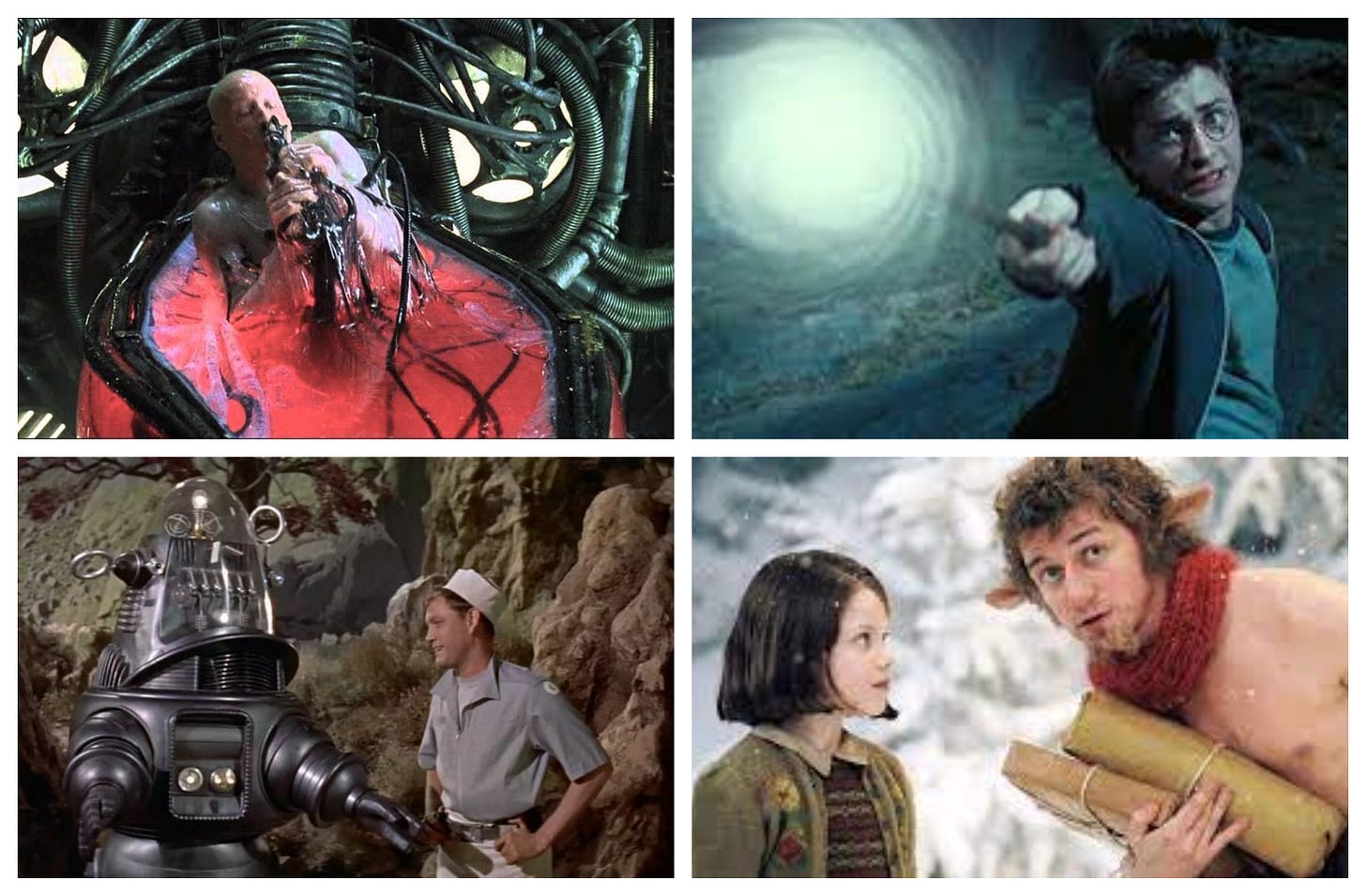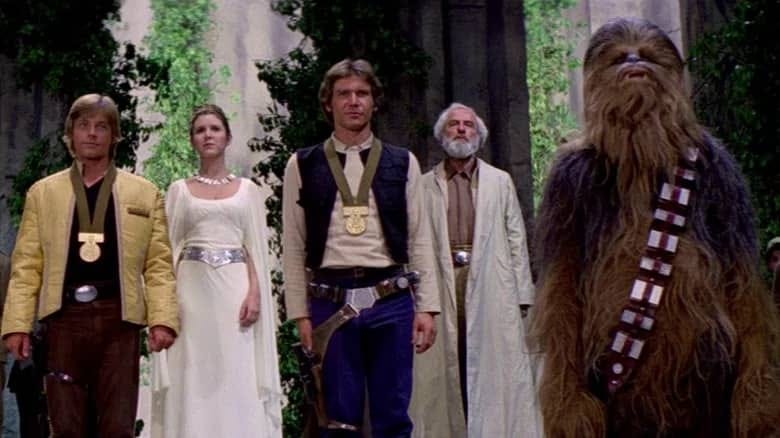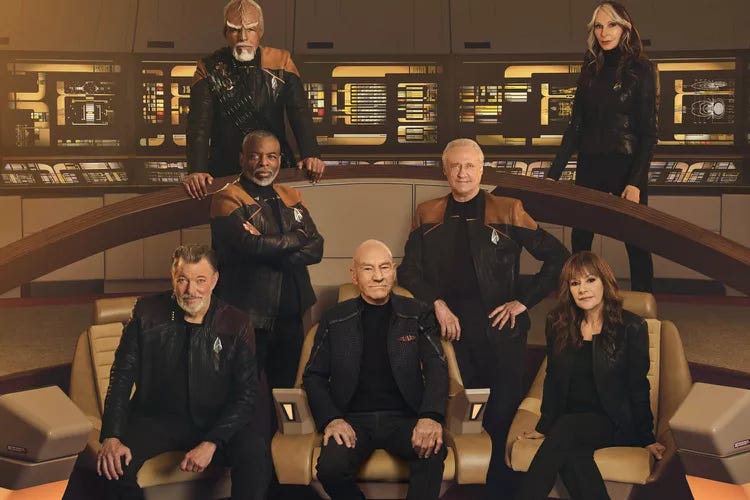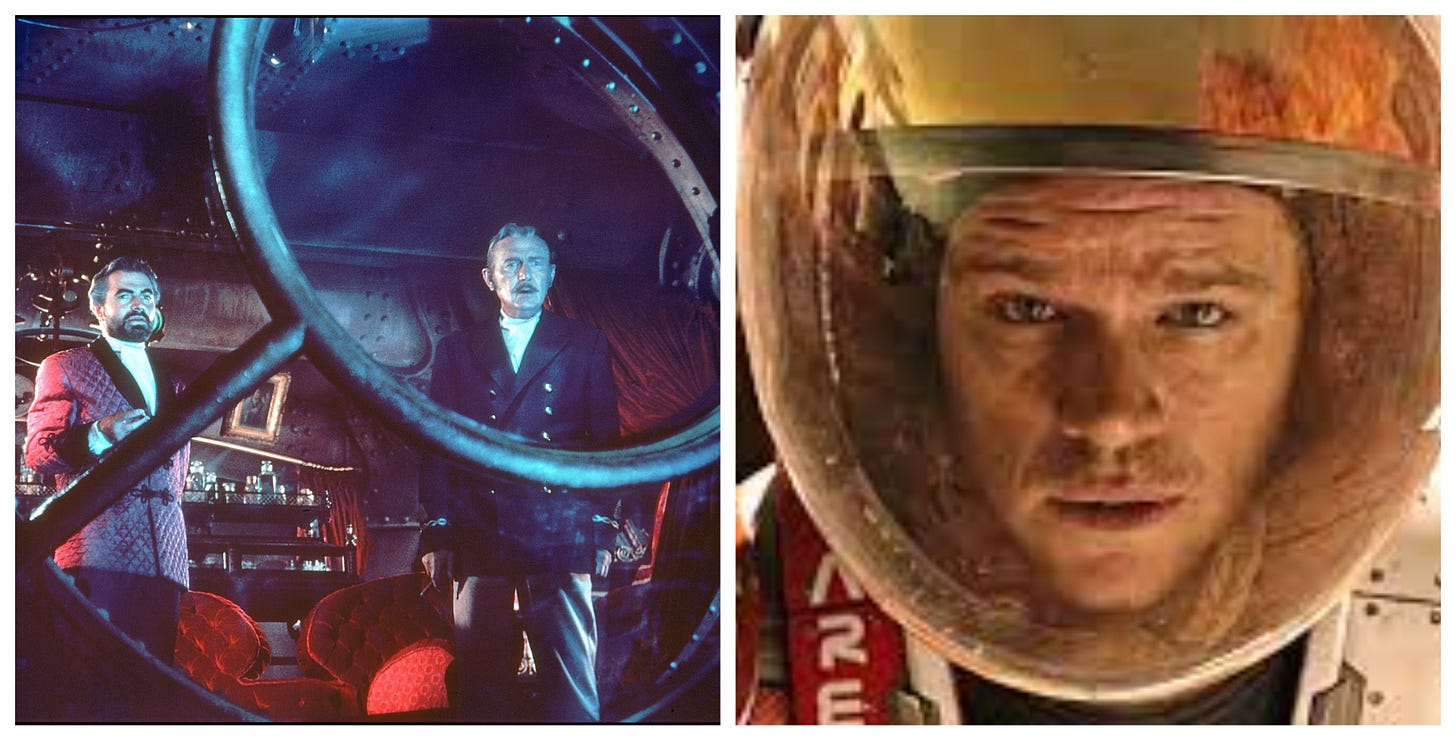What's the Difference Between Science and Magic?
The two conceits explain the difference between science fiction and fantasy. But I'm increasingly drawn to one over the other.
Science fiction is about optimism and the future, and fantasy is about pessimism and the past. Right?
Well, there’s plenty of pessimistic science fiction — dystopian, anyone? And I’ve read and watched lots of progressive, forward-thinking fantasy.
But here’s what definitely separates the two genres: whether the story’s defining feature is science or magic.
Science is an intellectual framework that posits that the universe is a logical, ordered, and theoretically understandable place. Things may be very, very complicated, but through careful observation and the scientific method, we can understand enough to make those all-important predictions about the future.
Plus, science gives us cool things like androids, teleportation devices, and parallel dimensions.
By contrast, magic is, well, a fictional literary device that leans into the idea that there already exists great knowledge or wisdom about the universe, and we can tap into it through incantations, or communing with supernatural forces, or sheer willpower. Magic lets us predict the future too, but we don’t really know why, because it all comes from some ancient or alien place beyond mortal understanding.
Magic is actually a lot like religion, and in this sense, it really is about the past.
Meanwhile, magic gives us invisibility, dragons, and enchanted lands you can travel to by passing through wardrobes.
Incidentally, the science/magic divide is why Star Wars has often been pegged as fantasy, not science fiction. Sure, the movies and TV shows include droids and hyperdrives, but what really drives the plot is, ultimately, The Force — which is most definitely magic. And even though fantasy doesn’t have to exist in the past, the world of Star Wars does take place in “a long time ago in a galaxy far, far away.”
On the other hand, Star Trek is all about science. Granted, it’s often terrible science, but at least the latest ridiculous device or silly technobabble was supposedly derived from the scientific method. The Star Trek shows and movies are very mainstream and openly commercial, but they’re still science fiction through and through.
Science and magic aren’t necessarily polar opposites. Arthur C. Clarke wrote that “any sufficiently advanced technology is indistinguishable from magic” — which, incidentally, is exactly the kind of thing that a science fiction writer would write.
Meanwhile, magic in Ursula K. Le Guin’s World of Earthsea books was definitely not random or completely unknowable. “The world is in balance, in Equilibrium,” she writes. “A wizard’s power of Changing and of Summoning can shake the balance of the world.”
No, magic and science are more two sides of the same coin — the coin being the acknowledgement of how little we humans truly know about the universe around us, and our desire to understand and, yes, control our surroundings.
Whether you’re Team Fantasy or Team Science might depend on how you view the universe — the degree to which you think things are knowable, and the risks you’re willing to accept in pursuing that knowledge.
Fantasy says, “Don’t eat the food of the fae!” And, “Don’t leave the Mirkwood trail!”
Meanwhile, science fiction says, “Space! The final frontier.” And, “Stuff your eyes with wonder.”
So in that sense, maybe science fiction really is a bit more optimistic than fantasy.
A Song of Ice and Fire — the series of books that became the TV series Game of Thrones — is a fantasy project that definitely leans into the risk and danger of magic.
“Fantasy needs magic in it, but I try to control the magic very strictly,” Martin says. “I try to keep the magic magical — something mysterious and dark and dangerous, and something never completely understood.”
Which isn’t to say science fiction doesn’t also sometimes see great danger in asking questions about the universe. Mary Shelley’s Frankenstein is considered the world’s first science fiction novel — the first story where fantastic events are driven entirely by scientific, not supernatural, means.
And since its publication, we’ve seen approximately nine hundred zillion cautionary tales about the great dangers in scientists crossing certain formerly forbidden boundaries.
If anything, exuberant, embrace-the-possibilities science fiction, like Star Trek or the works of Jules Verne, Arthur C. Clarke, and Andy Weir, might even be the minority of the genre.
As for fantasy, it doesn’t exactly encourage caution. Abe doesn’t hesitate to go find Miss Peregrine's Home for Peculiar Children, and Harry happily heads off to Hogwarts.
But, well, some humility is usually in order. Ask too many questions, and Aslan will growl and say, “Child, I am telling you your story, not hers. No one is told any story but their own.”
As for me, I feel like a bit of a contradiction. My world-view is very much Team Science: I’m an agnostic, no-nonsense empiricist with very little patience for superstition of any kind.
And yet, when it comes to my entertainment choices, I enjoy some science fiction, but I definitely gravitate more toward fantasy.
And apparently, I’m not alone in my choice. It’s no secret that fantasy novels now outsell science fiction many times over. It also seems clear that supernatural movies and TV shows are far more popular than science-inclined ones — even if you exclude superheroes from the fantasy genre, which I absolutely do, if only because I am so unbelievably sick of superhero stories.
We’re now living in the Age of Fantasy. The heyday of science fiction — back in the 50s, 60s, and 70s — is over and gone.
Is this just the natural waxing and waning that all genres do? Or is it more the fact that we’re now all so overwhelmed by science and technology that we don’t want more of it in our fiction?
If so, that would also explain why so much of the science fiction that does get published and produced is of the decidedly sour, dystopian type. Hell, even Star Trek is a lot bleaker than it used to be.
This is my theory. These days, the true costs of our Brave New World of Technology are impossible to avoid. Just when we were finally starting to accept the reality of nuclear weapons and climate change, up pops A.I., which might be an even more dire threat to our existence.
Clearly, Mary Shelley, that very first of sci-fi authors, was right all along to be very wary of the scientist with the maniacal gleam in his eye.
But I don’t like this brand of science fiction. I find depressing fiction…depressing.
So instead, I’m increasingly drawn to magical lands, and ancient tomes, and mysterious labyrinths. And honestly? I’m fine with a heaping dose of humility.
I still love science — especially the cures and conveniences that science continues to provide.
But the way the world is now? I clearly need magic more.
Brent Hartinger is a screenwriter and author. Check out his other newsletter about his travels at BrentAndMichaelAreGoingPlaces.com.








Ooh, way to push my intellectual buttons! I love this topic so much I did my doctoral study on it.
I think one important thing to consider is that fantasy is never purely escapist. It's always rooted in the real, because people only understand the different and fantastical when there's an agreed 'normal' baseline it's differing from.
Possibly one of the big draws of fantasy in recent years - because I agree with you that in general fantasy is a literature of the past and science fiction a literature of the future - is that authors have been using fantasy to reimagine and reframe the past, not just escape to a romanticised version.
Now we're seeing queer fantasy stories, fantasy stories about people of colour, fantasy stories that interrogate and challenge a lot of accepted norms about the genre, about society, and how we think about our past/s.
It's transformative. And the power of reimagining the past is that it lets us reconstruct our present as well, in a much more intuitive way than a future-oriented science fiction can do. In my opinion, anyway.
Science fiction will tell you the best way to change the future is to change the present, which is true. Fantasy lets you reshape and reinterpret the past to actually change that present.
Thanks for such a thought-provoking article!
I enjoyed reading your thoughts on this, because I was mulling on the differences between the two genres myself. I like both genres, although if I had to choose, I would pick fantasy just for the magical elements. However, one thing I’ve been wondering about is why fantasy books and series seem to be much longer than sci fi ones. It’s pretty common for me to find a standalone, new release in sci fi somewhere between 300 and 400 pages long, but I’ve rarely found a fantasy new release of that size that’s not just the first in a trilogy or similar. Plus, if a book is going to be 600+ pages, it’s more often than not in the fantasy genre. This is all anecdotal, and it may be a recent trend, but I would be curious to know if you’ve noticed it or have any thoughts on why it might be happening.